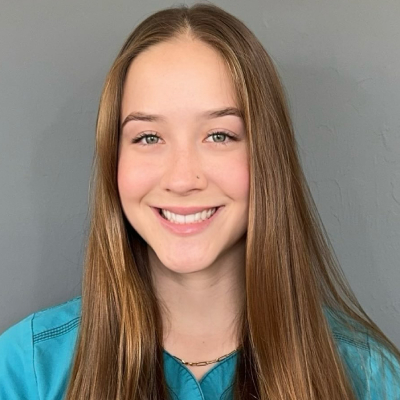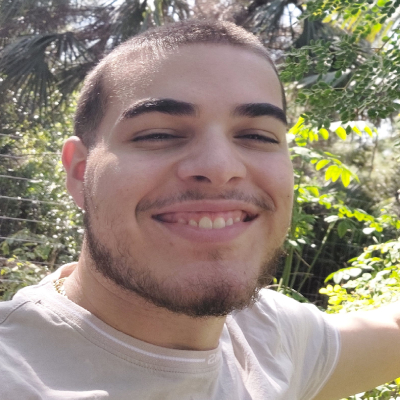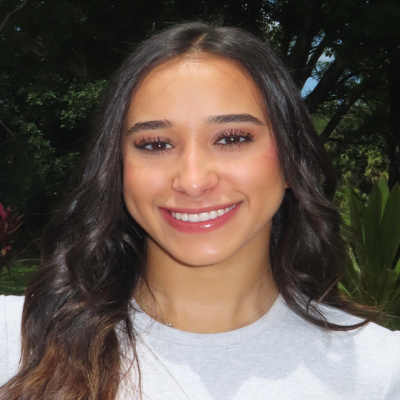Internships give biology students real-world, hands-on experience in field, lab, clinical, or community-based settings. They help you:
- Apply your biology knowledge in professional environments
- Build skills in research, communication, and teamwork
- Make connections for future employment or grad/professional school
- Explore career paths before graduating
FALL 2025
Internship in Biology (BSC 4940)
- This is designed for students who want to complete an internship but are not starting their senior-year capstone.
Senior Project I: Internship (BSC 4944C)
- This is designed for students who want to complete an internship as their capstone.
- Requires completion of Senior Project II: Presentation (BSC 4911) in the following semester.
- Fill out the attached form.
- Email the attached form to Ms. Gissela Bravo (gbravo@fgcu.edu) and cc the department chair, Dr. Rhodes (lrhodes@fgcu.edu).
- You will be placed in a CRN with a departmental faculty member who will oversee the associated internship course from campus.
- As a reminder, the number of credits is determined by the number of hours that you
will work over the semester. For the capstone, you will complete a 2-credit-hour course.
- 2 credits – 90 hours minimum
- Provide a letter of support from your intern site supervisor. This is the person with whom you will complete the internship. The letter should be on company letterhead.
- Provide a 1-page letter describing what you will do, how the experience will benefit you, and how it aligns with your biology major.
Once enrolled, there will be some assignments in Canvas that you will complete asynchronously for the course related to your experiences and professional development associated with the internship.
During a typical 16-week semester, it is 3-4 hours of internship each week. As a result, an internship tends to require the following number of hours over a typical semester:
- One Credit ~ 50 hours/semester
- Two Credits ~ 100 hours/semester
- Three Credits ~ 150 hours/semester
In summer six-week semesters, the number of hours are:
- One Credit ~ 8.3 hours/ week
- Two Credits ~ 16.7 hours/ week
- Three Credits ~ 25 hours/ week
HOW TO GET INVOLVED
Meet the Prerequisites
Before enrolling in BSC 4940 or 4944C, you must complete at least one of the following:
-
PCB 3023C – Cell Biology
-
PCB 3043C – General Ecology
-
PCB 3063C – Genetics
Internship Opportunities
Look for opportunities on your own or with faculty help in:
- Research labs | Wildlife or marine agencies | Hospitals or medical offices (if pre-med) | Environmental consulting firms | Local non-profits
-
If you are looking for opportunities, you are encouraged to contact the Office of Internship and Cooperative Programs.
Trudi-Ann Dyer (tdyer@fgcu.edu) should be able to help. - The internship must include a clear biological or scientific component and a qualified site supervisor.
-
Talk to your professors — many involve students in their research or know local partners. Biological Sciences Faculty
-
Check with Career Development Services at FGCU.
-
Ask your biology advisor (naturalsciences@fgcu.edu) for leads on biology-relevant internships.
Get Department Approval
-
For BSC 4940 (Internship in Biology) or BSC 4944C, you must obtain approval from the department chair.
-
This ensures your experience meets academic standards and counts toward your degree.
-
- Fill out the attached form.
- Email the attached form to Ms. Gissela Bravo (gbravo@fgcu.edu) and cc the department chair, Dr. Rhodes (lrhodes@fgcu.edu).
- You will be placed in a CRN with a departmental faculty member who will oversee the associated internship course from campus.
- As a reminder, the number of credits is determined by the number of hours that you will work over the semester. For the capstone, you will complete a 2-credit-hour course.
- 2 credits – 90 hours minimum
- Provide a letter of support from your intern site supervisor. This is the person with whom you will complete the internship. The letter should be on company letterhead.
- Provide a 1-page letter describing what you will do, how the experience will benefit you, and how it aligns with your biology major.
Once enrolled in Fall, there will be some assignments in Canvas that you will complete asynchronously for the course related to your experiences and professional development associated with the internship.
-
Register
If you want your internship to count as your capstone experience, you’ll need to register for:
-
-
BSC 4944C – Senior Project I: Internship (2 cr)
-
BSC 4911 – Senior Project II: Presentation (1 cr) the following semester
-
BSC 4944C is a senior course, the other internship course (4940) could be taken earlier than senior year.
Post-Internship Reflection





